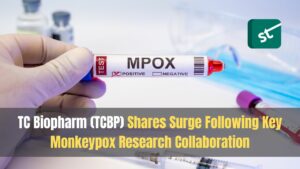On Thursday, TC BioPharm (Holdings) Plc (NASDAQ: TCBP) shares experienced a notable surge on the US stock charts, closing at $6.61, marking an increase of 11.66%. This increasing trajectory comes after the business revealed its most recent artificial intelligence project, which aims to revolutionize cell therapy patient screening procedures.
TC BioPharm Entered An Strategic Alliance
A sponsored research agreement has been signed between TC BioPharm and Carnegie Mellon University, a prestigious university recognized for its contributions to computational biology and artificial intelligence.
Through this partnership, TC BioPharm will collaborate with renowned researcher at the Ray and Stephanie Lane Computational Biology Department, Dr. Wei Wu. Together, they will leverage AI technologies to enhance the donor selection and matching processes, addressing a critical challenge within the cell therapy sector.
TCBP Addressing the Complexity of Donor Variability
Dr. Wu’s research primarily focuses on elucidating complex human diseases through integrative methodologies that encompass biology, computational and statistical learning, bioinformatics, and genomics.
The cell therapy industry faces significant challenges related to donor variability and the accurate prediction of outcomes among diverse patient populations. By employing AI to analyze large datasets, TC BioPharm aims to refine donor screening procedures, ultimately leading to improved manufacturing yields and enhanced patient outcomes.
Pioneering Advances in Cell Therapy
It is expected that this endeavor would transform donor selection and patient matching, going beyond current methods based on the human leukocyte antigen (HLA). This novel technique offers a significant market opportunity and has the potential to be widely applied in the biopharmaceutical sector as well as within contract development and manufacturing organizations (CDMOs).
TC BioPharm’s partnership with Carnegie Mellon University marks a significant step in addressing this ‘big data problem,’ and the collaboration is poised to yield substantial breakthroughs in medical and scientific fields. The excitement surrounding this endeavor reflects the immense potential of artificial intelligence to reshape the landscape of cell therapy and improve patient care outcomes.













